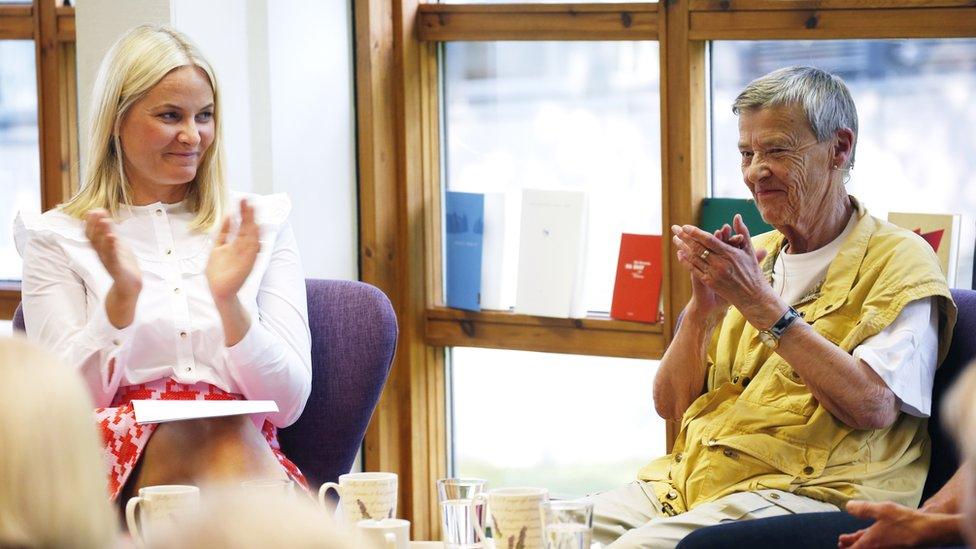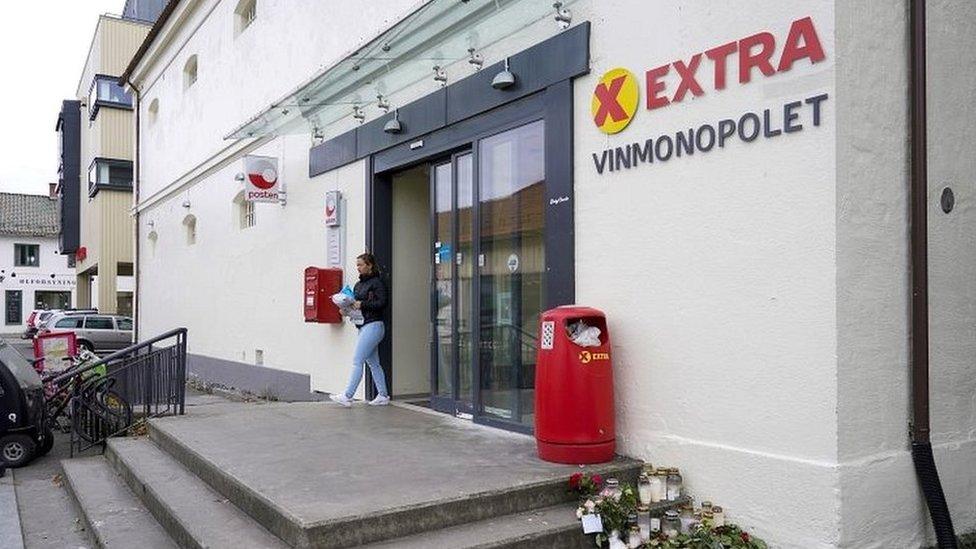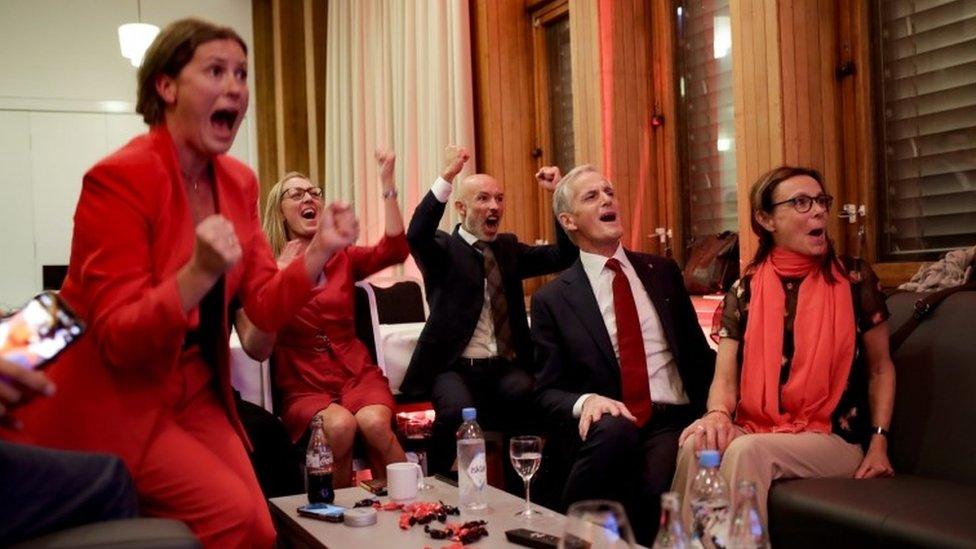Gay Santa ad highlights big shift in Norwegian society
- Published
Watch: Norway's When Harry met Santa advert
Christmas ads have become an annual tradition, often appearing as mini-films with their own festive story. But one Norwegian commercial, featuring Father Christmas kissing a man waiting for him at home on Christmas Eve, has become a surprise hit.
In When Harry meets Santa, the four-minute ad by Norway's state-run Posten postal service, the man is seen writing Father Christmas a letter to the North Pole with the message: "All I want for Christmas is you." And he gets his wish.
"We wanted to celebrate the 50-year anniversary since the abolition of a law prohibiting same-sex relationships," says Monica Solberg, Posten's marketing director. The ad has been watched well over two million times online.
"The magnitude of response took us a bit by surprise. We expected a reaction, but not to such an extent."
The ad raised few eyebrows in Norway, external or in neighbouring Nordic countries, but it has prompted some discussion beyond. As well as praise there has been criticism, with claims that it sexualised Father Christmas or that it showed Santa cheating on Mrs Claus.
In many parts of the world, the idea of a gay Christmas romance would be controversial. A survey on Thursday suggested many in the UK considered a gay Father Christmas "unacceptable" although there was a clear divide in age groups.
Allow X content?
This article contains content provided by X. We ask for your permission before anything is loaded, as they may be using cookies and other technologies. You may want to read X’s cookie policy, external and privacy policy, external before accepting. To view this content choose ‘accept and continue’.

However, in the Nordic region the ad was generally viewed as a heart-warming Christmas story, reflecting Norway's progressive approach to LGBT rights.
Until 1972 homosexuality in Norway was a criminal offence and changes in attitudes have taken time. Norwegians may now shrug their shoulders at an ad showing Santa kissing another man, but had it not been for one activist in particular things might have been different.
Kim Friele has been credited with relentlessly campaigning for the changes first to the same-sex law in 1972 and then to Norway's partnership law that allowed same-sex marriage 21 years later.

Activist Kim Friele (R) met Norway's Crown Princess Mette-Marit in 2016
Such was Friele's national importance that when she died aged 86 last month, she was given a state funeral attended by members of Norway's royal family.
Friele had once told Norwegian public broadcaster NRK how until the 1960s same-sex couples had to meet in secret underground clubs and how they were judged by society.
She reacted by giving lectures in schools and universities, appearing in the media and becoming a recognisable face during public debates.
"We would lecture them, we would tell them about our lives. We would not sit there and listen to all their textbook lessons. I would explain what kind of people we are," she said.
During her campaign, Friele met conservative parliamentarian Wenche Lowzow, who would go on to become the love of her life.
While the couple were eventually able to tie the knot in Norway's first same-sex civil partnership, their relationship cost Lowzow her political career.
Few members of Norwegian society are afforded a state funeral, but hers was held in Oslo's cathedral and broadcast live on national TV.
Prime Minister Jonas Gahr Store spoke at the service of "a warm, friendly, brave and powerful human who changed history".
He underlined how Friele had articulated the "unfairness that free people could not love who they wanted" and thanked her for making Norway more diverse.
For many Norwegians, the sight of her coffin adorned in rainbow colours was an even more potent symbol of how far the country has come than the gay Christmas kiss created by the country's postal service.
Related topics
- Published9 November 2018

- Published18 October 2021

- Published14 September 2021

- Published6 July 2021
